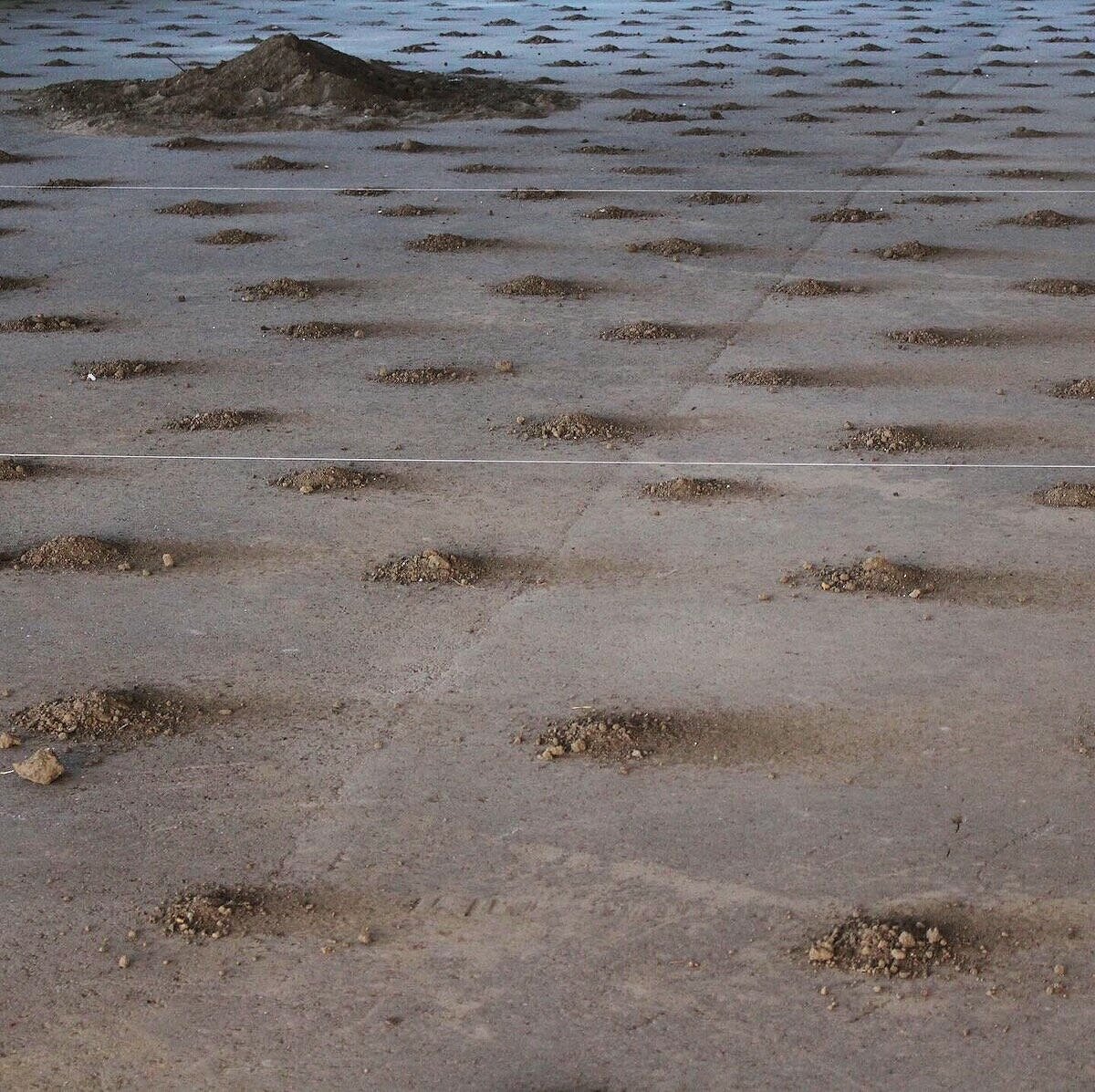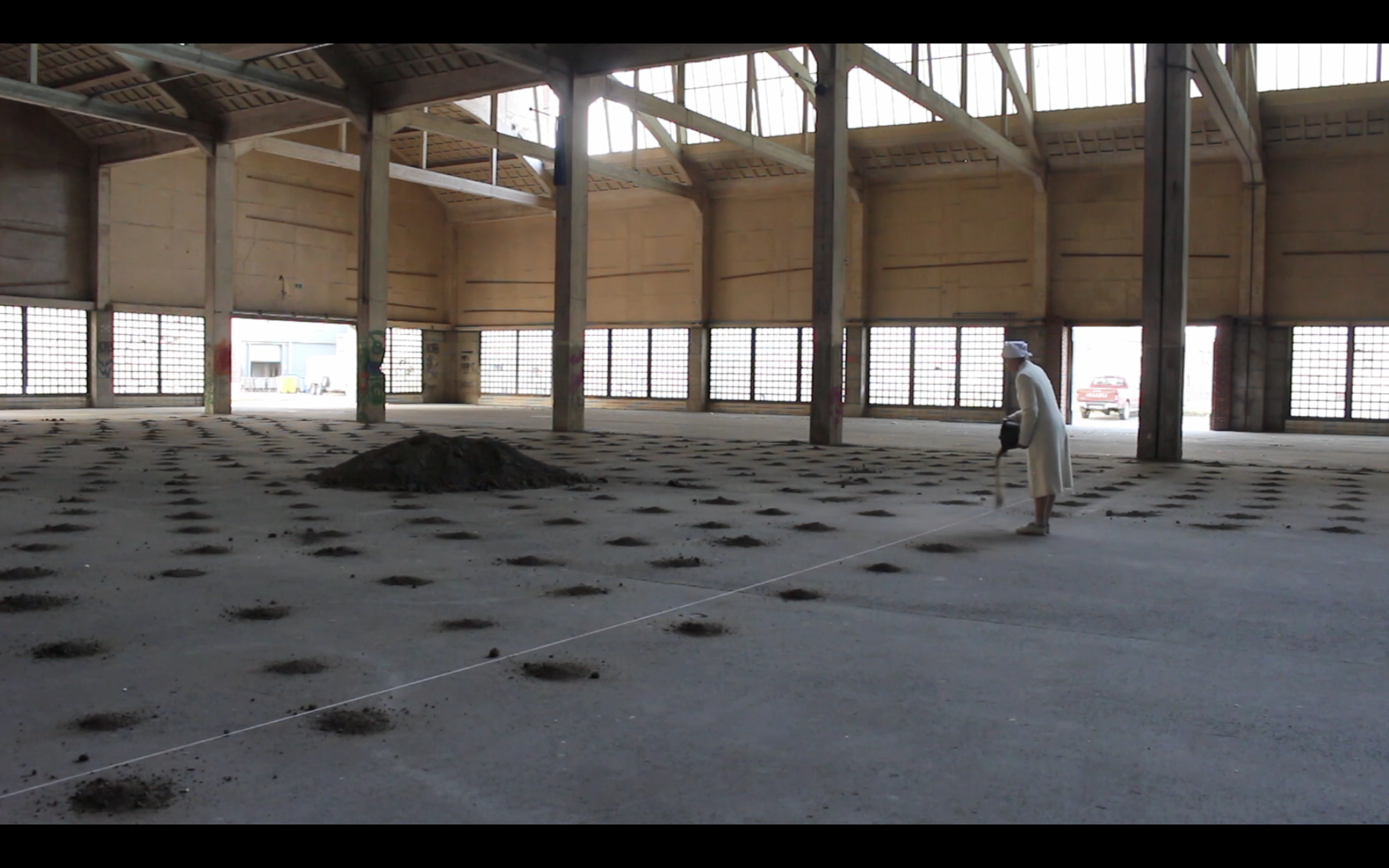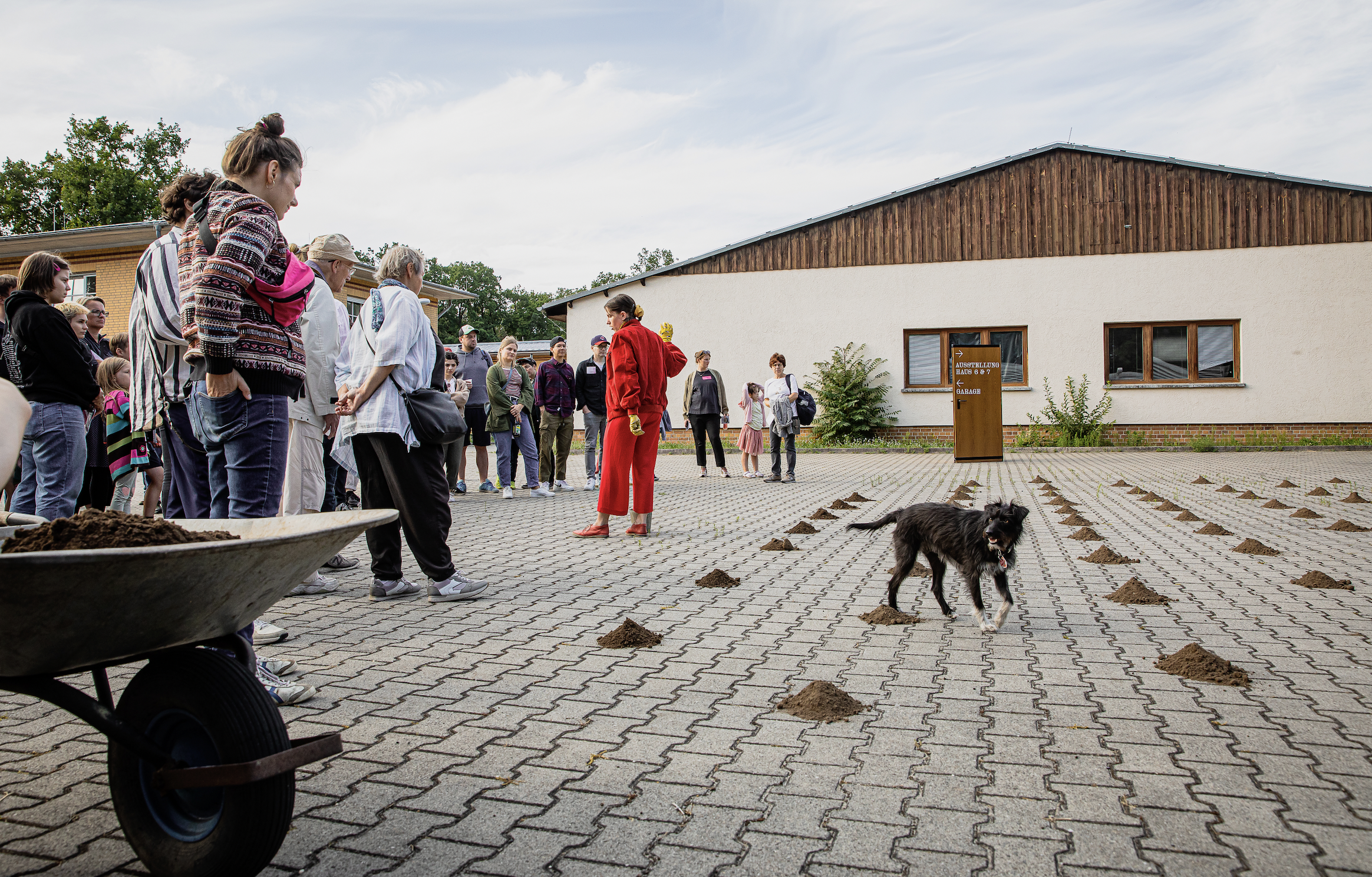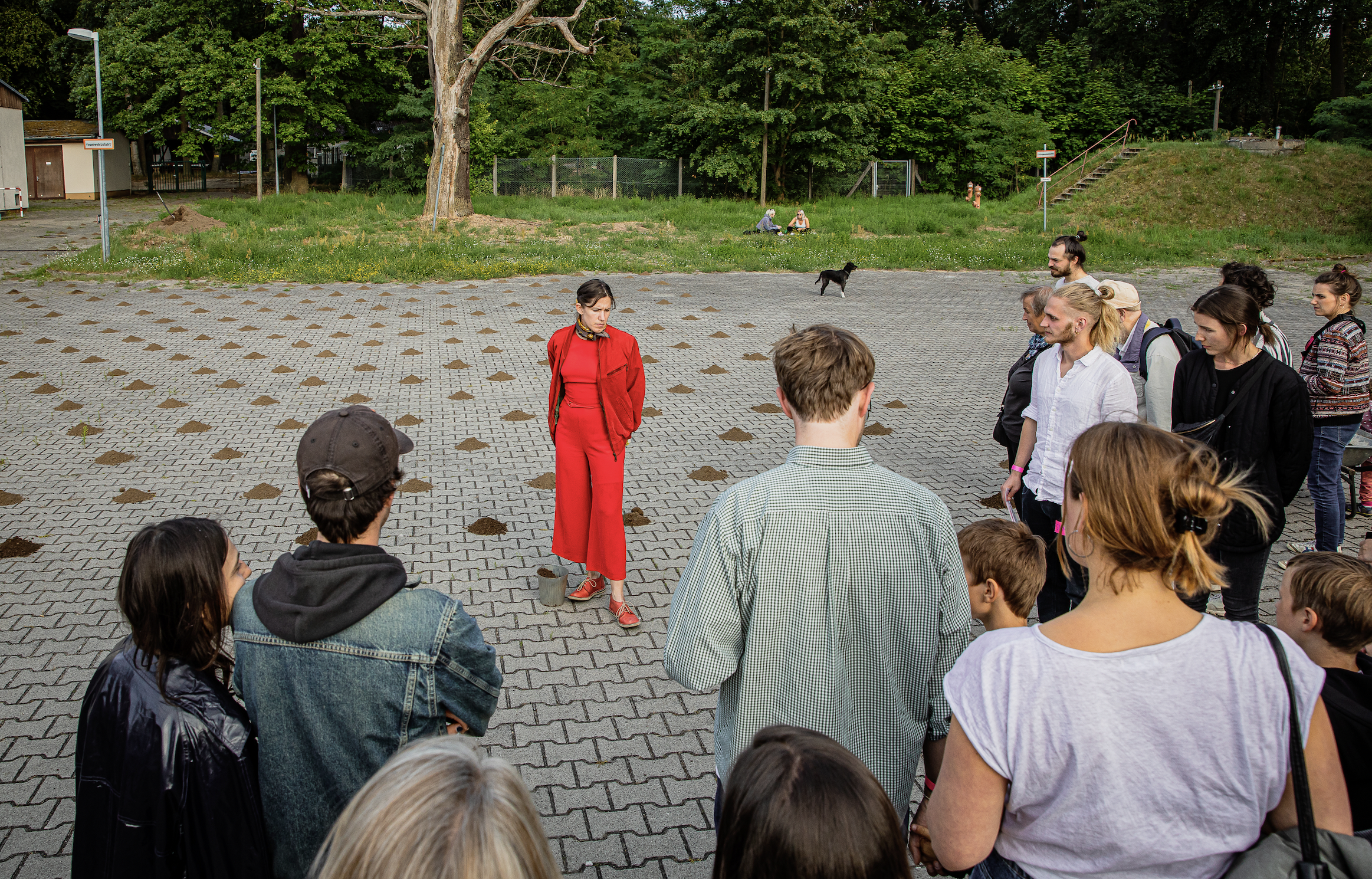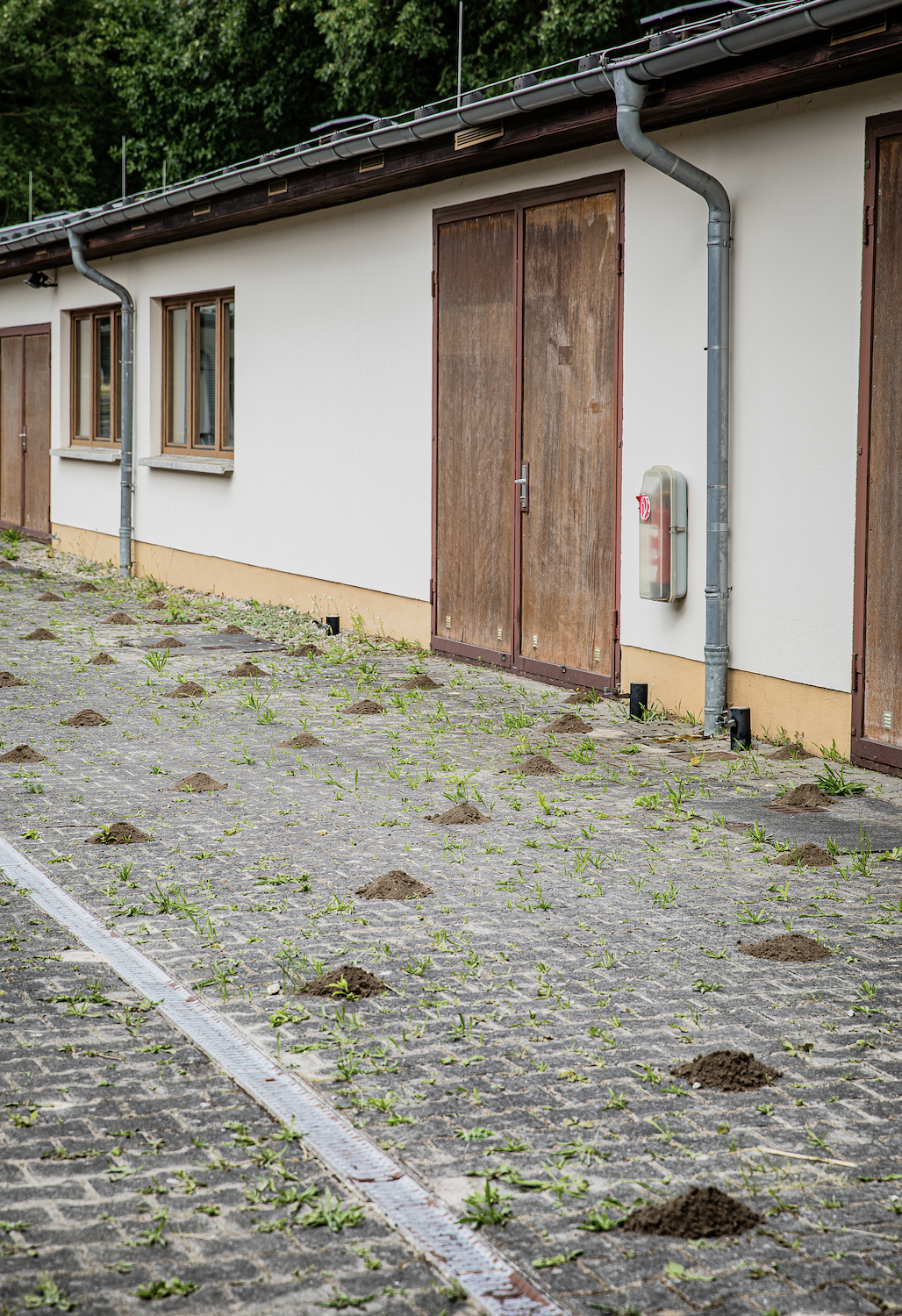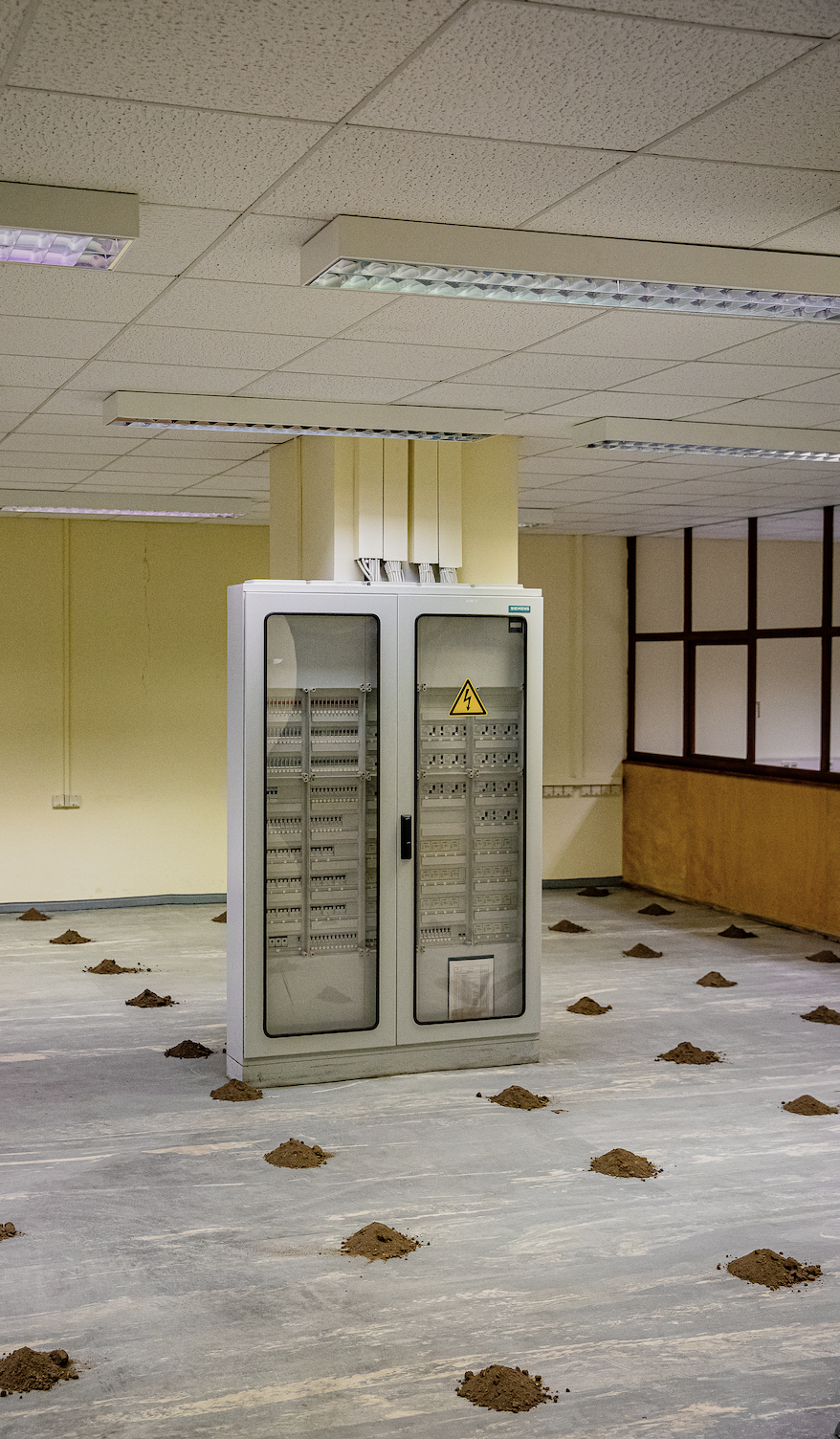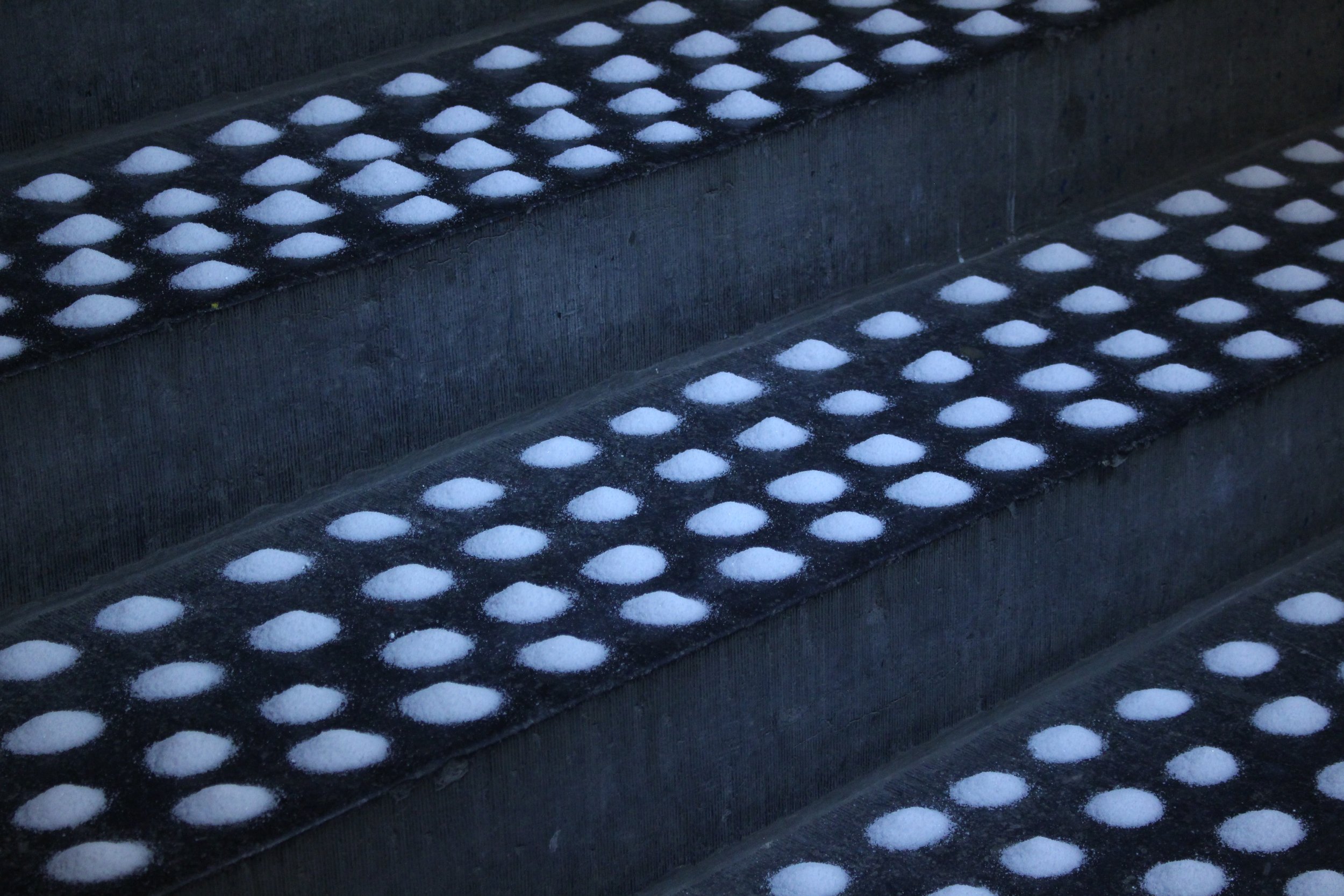Spaces of Silence
Working with natural based materials places me as a human in a dialogue with nature. In research with the material I learn from it driven by the interest to understand the material since our human bodies are effected by them and their synthesises, too.
So far I have been working soil and salt creating spaces for peace to honour and value others.
In my understanding of the material soil, I see it as the most profound material of the planet. It represents decay, death, fertility/creation and rebirth. Embodying the circle of life due to its ground components.
Whereby the material salt has a long culture on neutralising and cleaning, wether in a medical antibacterial way or as for energies since it neutralises the negative ions in space. Therefore it has been used in many practices for healing and in funeral ceremonies.
I am currently researching and working with water. In April 2025 I will give a 10 Day Workshop to the Students of the In-Situ Department of the Royal Academy of Fine Arts on its mutual components and how it resonates with the human body.
The Urne
2021, The Urne, emphemeral soil Installation in a former slaughter house, next to Archipel site, Antwerp, Belgium
The soil Installation derived out of the performative process of ‘Not Two’, where two performers fill up the giant space by creating small piles. Afterwards they sweep up all piles, merging them to one and redo the performance. It is expressing the view on two opposite forces existing at the same time constantly creating and deconstructing life physically, mentally and spiritually - in space - as a constant loop.
This ephemeral monument, which was accessible to the public for three weeks. During this time a camera documented the interaction of the public with the work. For the Antwerp Art Weekend, a projection of the performance was shown inside a room surrounded by soil. Where the spectator could smell the material and felt like being inside the pile.
Visitors are invited to walk inside and experience the silence of the space.
‘Not two’ a Performance Trilogy
Teaser of Performance, Original Duration of Perfomance 210:01’’, Performer: Adam Hartnell & Locuratolo
In 'Not two' a pile of soil is placed in the centre of the hall of the former Slaughterhouse. Two performers fill up the giant space by creating small piles. Afterwards they sweep up all piles into one again and redo the performance. It is expressing the view on two opposite forces existing at the same time constantly creating and deconstructing life physically, mentally and spiritually - in space - as a constant loop.
Special Thanks to:
Adam Hartnell, @archipel.site , @BramRombouts , Royal Academy of Fine Arts, Sara Dandois and Wouter Bolangier
2022, Close-up of Installation View, Localize, Potsdam, Germany
In commemoration to my great-grandparents
who perished in the Spanish Civil War.
Locuratolo approaches the numbers of fatalities that have died worldwide due to interventions by external states and due to civil wars in a formal, minimalist, abstract way, reduced to a base material. A silent and haunting ephemeral monument emerges, spreading out on the former military compound. It is a walk-in site-specific installation.
"And what remains of a person? Her great-grandparents perished in the Spanish Civil War. She doubts if anyone has ever honoured them. Every year, thousands die in wars, and she wants to remember these people, but unobtrusively."
Peter Degener
The Urne am Telegrafenberg, 2022, Installation view in a former military office, Commission for Localize, Potsdam, Germany
The artwork 'Die Urne – Am Telegrafenberg' by Locuratolo refers to a lesser-known past of the area. The artist has piled up hundreds of small mounds of earth on the outdoor grounds and even inside the hallways and offices. 'The earth is a product of decay – and I wonder what happens to my own body and what remains of me,' she says. In their regular pattern and consistent form, the mounds resemble rows of graves in military cemeteries. (...) 'It was also a military site, and I cannot ignore that,' says Locuratolo."
Peter Degener
The installation also provides space for visitors to write down words and wishes of peace for the living and the deceased, who are victims of violent interventions in public spaces. These loving gestures are read out in an evening ritual, burned, and spread out on the fields of the military ground.
Sea Salt on Blue Stone
Sea Salt on Bluestone is a site specific ephemeral memorial at the Royal Academy of Fine Arts Antwerp Belgium in 2022. It attempts to capture the annual number of suicides committed in Belgium in a minimal and silent way. The work developed out of a sudden loss of one of the academies teachers, who left us by their own will.
In 2019 five people committed suicide per day. According to the WHO, there are 20 times more attempts, that fail to succeed - 100 people per day. Suicidal behaviours (thoughts, attempts, and actual suicides) represent an important public health and societal problem in Belgium. During the COVID-19 crisis, suicidal thoughts and suicide attempts have increased. In June 2021, one out of 6 people reported having seriously considered suicide during the last 12 months. To prevent suffering and find appropriate treatment, the WHO (2022) suggests to identifying negative thought-patterns in an early stage and seeking support.
If you find your self in a challenging emotional situation and need to speak to someone, calling a helpline offers a great way to be heard and get sound advice. You are not alone.
Helplines are available to call 24 hours a day, seven days a week, don’t cost anything. They are anonymous and confidential. There are several ones within your country, easily find online. In challenging times like these where are facing now, it’s important to talk and reach out for assistance.




